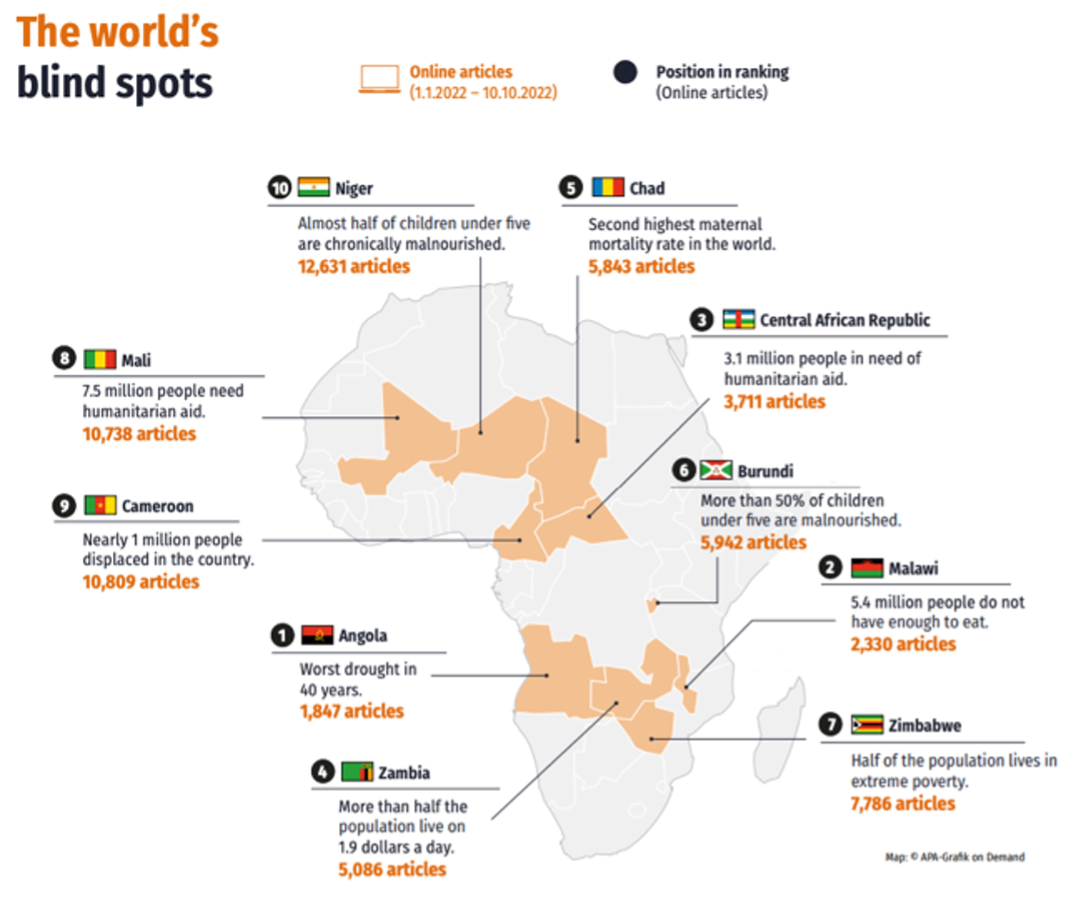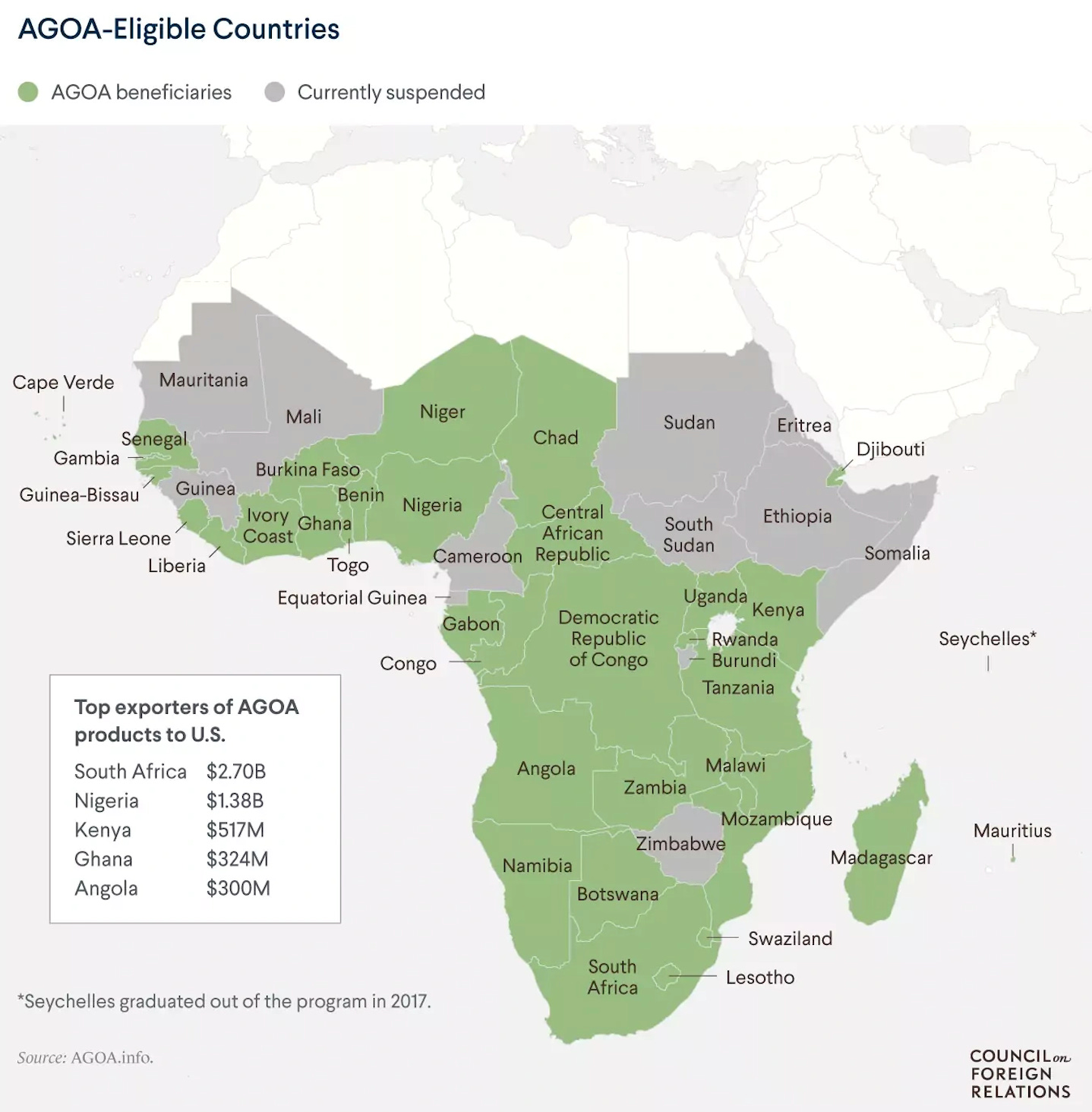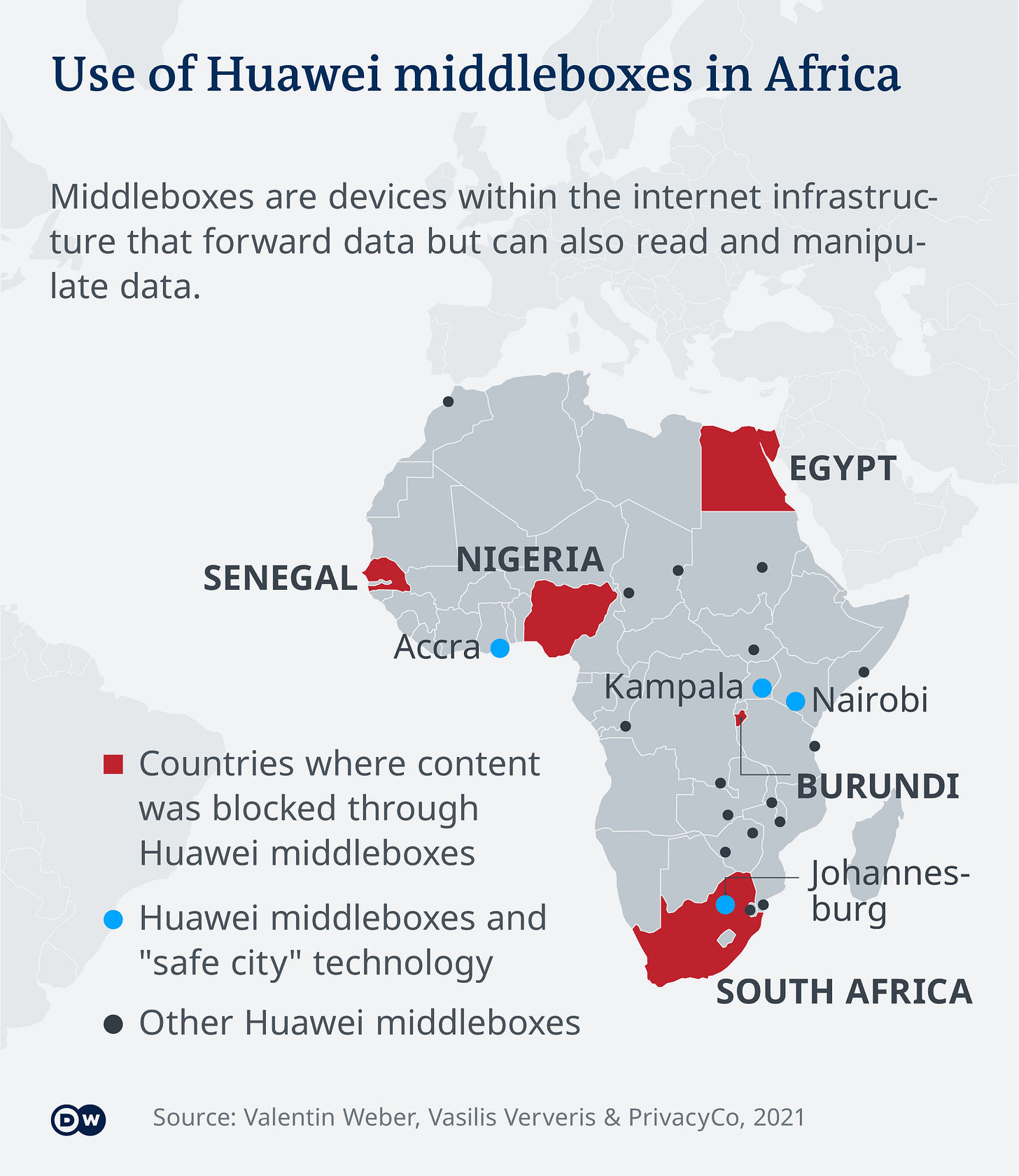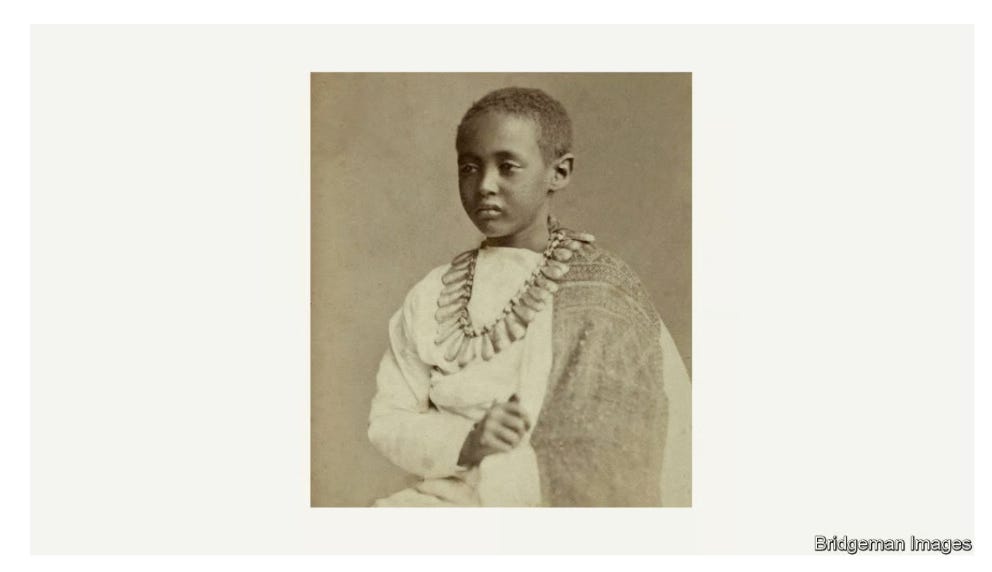Dear Africa Brief,
This week’s Africa Brief is dedicated to the memory of a friend — Eusebius McKaiser, one of Africa’s best and brightest journalists. His journalism and his podcast lives on.
w/o 29 May - 1 June 2023
TL;DR
BRICS. South Africa hosts a meeting of the foreign ministers of BRICS nations (Brazil, Russia, India, China, and South Africa) to discuss regional and global developments. The country remains in a bind over its commitments to the International Criminal Court and its hosting of the BRICS leaders summit later this year (The Diplomat).
Ceasefire in Sudan. The warring generals in Sudan agreed to extend their ceasefire agreement by five days. At the time of writing, however, the ceasefire has already been repeatedly violated, with fighting continuing in the streets of Khartoum. The agreement has helped in delivering aid to some 2m people (The Economist).
DRC files case against Rwanda. The DRC filed a case against Rwanda at the International Criminal Court (Voice of America).
Fulgence Kayishema arrested. After some 21 years ‘the world’s most wanted genocide fugitive’ was arrested in South Africa for crimes he committed during Rwanda’s genocide. Kayishema helped plan the massacre of about 2 000 Tutsi refugees at the Nyange Catholic Church (CNN).
Guinea’s democracy. Guinea’s military continues its month-long suppression of pro-democracy protests (AlJazeera).
South Africa digs in on its neutral stance. Minister in the Presidency Ntshavheni has dug SA's heels in on its ‘non-aligned’ stance. Ntshavheni urged Western countries to treat all nations equally and allow states to practice their ‘sovereignty’ (News24). See my piece on the subject in South Africa’s Business Day.
Quiz. Test your knowledge of African leaders in this Britannica Quiz.
Uganda’s anti-gay law. Uganda’s president (for the last 37 years) enacted one of the world’s harshest anti-gay laws this week (BBC).
Graphic of the Week
*Credit: Institute of Security Studies
In context: While the world focuses on Ukraine, unprecedented funding shortages, famine, and shrinking migration pathways are leaving hundreds of thousands of Africans struggling. These stories get disproportionately little media attention.
Business in Africa
Want to know the state of Africa’s largest 250 companies? The African Business Report finds that market capitalisation has fallen dramatically since the 2022 survey, from $701bn to $561bn. This figure is well below the record $948bn achieved in 2015 (a result of commodity price hikes and China’s economic boom).
The decrease is largely a consequence of a decline in economic growth in South Africa. The country’s 96 corporations dominate the 250 list taking 67% of its entire value in 2023 with a combined market capitalization of $375bn. Want to know who has the top spot? Check out this article for more.
African startups expanding to Latin America are rare. What’s rarer, however, is the reverse — Latin American startups jumping the Atlantic onto Africa’s shores. Breaking the mold, Brazilian fintech unicorn EBANX is expanding operations in providing local payment solutions across 18 African countries.
The rationale behind EBANX’s move to the continent makes perfect business sense. Africa presents a $115 billion digital economy (a growing) — a result of a young and digitally savvy population coupled with increasing digital penetration and increasingly inexpensive mobile data (TechCrunch).
On Africa’s West Coast, Ghana’s domestic debt troubles continue. This week the country’s independent power producers, which supply 50%of the country’s electricity, rejected a proposal to restructure $1.5 billion in arrears owed to them by the Ghanaian state (Reuters). See previous Africa Briefings for the full picture on Africa’s debt or my recent article in the Business Day.
Shifting gears to geopolitics and macroeconomics, South Africa continues to manage the economic fallout as a result of its suspected selling / donating arms to Russia. This week, South Africa's Minister of Trade, Industry, & Competition Ebrahim Patel said that the government ‘should do everything possible’ to retain its special trade relationship with the US in light of the strained diplomatic relations between the countries.
The African Growth and Opportunity Act (AGOA) underpins US-Africa trade, allowing eligible sub-Saharan African countries tariff-free exports into the United States. The US, however, can remove AGOA preferences to punish states who act counter to US interests or values. Cameroon famously lost its preferential status.
Minister Patel does not want something similar to happen to South Africa, saying ‘we should do everything possible to retain [AGOA]’. Minister Patel said that he and Finance Minister Enoch Godongwana were actively lobbying Washington to ensure that SA is not excluded (News24).
*Credit: Council on Foreign Relations
The bad news continues for Africa’s most industrialized economy. The African Development Bank in its annual flagship report found that while growth in Africa is projected to stabilize at 4.1% in 2023-24, higher than the estimated 3.8% in 2022, growth in Southern Africa is projected to decelerate by 1.1%, from an estimated 2.7% in 2022 to 1.6% in 2023. “The projected sharp decline in 2023 reflects continued growth weakness in South Africa, the region’s largest economy and trading partner, from 2% in 2022 to an estimated 0.2% in 2023” the report found (BusinessDay).
China in Africa
The South China Morning Post reports on Beijing’s new commitments to law enforcement activities across the continent, having signed agreements with 40 countries. Take Uganda for example, a 2022 joint operation led to the capture and deportation of four Chinese nationals who were allegedly part of a criminal gang.
These agreements include provisions for the protection of Chinese nationals (mostly migrant workers staffed to Belt & Road Initiative projects) in country. For example, the Ethiopian and China’s Ministry of Public Security signed a cooperation framework to protect “major Chinese-assisted projects in the country” such as the Addis Ababa-Djibouti Standard Gauge Railway.
Between 2003 and 2017, African countries secured US$3.56 billion in Chinese loans for public security – including surveillance systems (Huawei), national security networks and other security wares like anti-riot gear.
*Credit: DW
Democracy in Africa
An icon of Sierra Leone’ independence, a 400-year old, 70 metre high cotton tree in the middle of Freetown, its capital, was felled by a storm last week (Guardian). The tree was a symbol of the country’s freedom.
Turning to Africa’s Horn, Somalia’s government said that the country would begin voting for its president in direct elections in 2024. This marks a shift from its indirect voting system in which clan representatives and delegates choose candidates for parliament, who then designate a president. The embattled government, which faces widespread insecurity, faces an uphill battle in introducing a one-person, one-vote election.
In Guinea, Foreign Policy writes that at least seven people were shot dead and 32 wounded in anti-government demonstrations over the month of May. The junta warned that further dissent would be met with the full weight of the army.
Many young Guineans continue to argue for stability, security, and a responsible government despite the deadly cost of organizing for such a thing. A recent survey by Afrobarometer found that 77% of Guineans support democracy in their country.
And in finally, in Uganda a recently enacted law makes anyone found to have had gay sex will face life imprisonment. Those who have gay sex with under-18s or HIV-positive people could receive the death penalty under the law. Human-rights groups said that the law would hinder HIV treatment. President Joe Biden threatened sanctions if it is not repealed (New York Times).
Europe in Africa
Buckingham Palace has declined a request to return the remains of an Ethiopian prince who was buried at Windsor Castle in the 19th Century (BBC). Prince Alemayehu was taken from his home to the United Kingdom aged seven and arrived an orphan after his mother died on the journey.
Queen Victoria took an interest in him and arranged for his education and later his burial when he died aged 18. A plaque can be found in St George’s Chapel, Windsor which reads: “This tablet is placed here to his memory by Queen Victoria… I was a stranger and ye took me in.”
Prince Alemayehu’s family have asked for his remains to be repatriated; "We want his remains back as a family and as Ethiopians because that is not the country he was born in," his descendant, Fasil Minas, told the BBC.
A photograph of Prince Alemayehu.
*Credit: The Economist
Peace and Security in Africa
Sexual violence against women and girls besets many African states in conflict. This week a top UN official called for immediate action to respond to increasing allegations of such crimes being carried out in camps for people who are internally displaced around Goma, an eastern region of the Democratic Republic of Congo (UNICEF).
Staying with the UN, its political affairs chief Rosemary DiCarlo appealed to the Security Council to provide reliable funding for African Union-led peace support operations in response to new security challenges (UN News).
Back in the DRC, its government has made another formal referral to the International Criminal Court (ICC) requesting the body focuses on what the DRC calls the systematic pillaging of its natural resources in eastern Congo by the Rwanda Defence Forces (RDF) and the M23 rebel group (News24).
*Credit: The Economist
Further North, the New York Times reports that many Sudanese artists have fled the fighting in Khartoum, the country’s capital, leaving their work and livelihoods behind.
Staying in the Sahel, Germany plans to withdraw from the United Nations peacekeeping mission in Mali by May 2024.The Multidimensional Integrated Stabilization Mission in Mali (MINUSMA) established in 2013 is stationed in the country to battle Islamist militants. Recently, however, Western governments have argued that Mali’s decision to bring in Russian Wagner Group mercenaries has hampered the mission.
Finally, the terrorist organization al-Shabaab, continues its campaign of terror in the Horn of Africa, attacking an African Union (AU) military base last Friday killing over 130 soldiers. The AU has maintained a peacekeeping presence in Somalia since 2007 (Al Jazeera). The country is also battling the worst drought in 40 years — some 8.3 million Somalis, many of whom are in Shabab-held territory, face famine. A United Nations-backed conference raised $2.4 billion in pledges last week for people affected by drought in the Horn of Africa (Reuters).
In response, the US Africa Command conducted an air strike against militants in the vicinity of the AU Transition Mission forward operating base, Bulo Marer, on 26 May’ the US Africa Command said in a statement on Saturday (IOL)
US in Africa
In a continuation of the diplomatic fallout between the US and South Africa, the US suspended the sale of nuclear fuel components for South Africa’s Koeberg nuclear power plant — a result of SA insisting on its right to manufacture its own nuclear reactor fuel in the future (Daily Maverick).
Warmly,
Joshua








